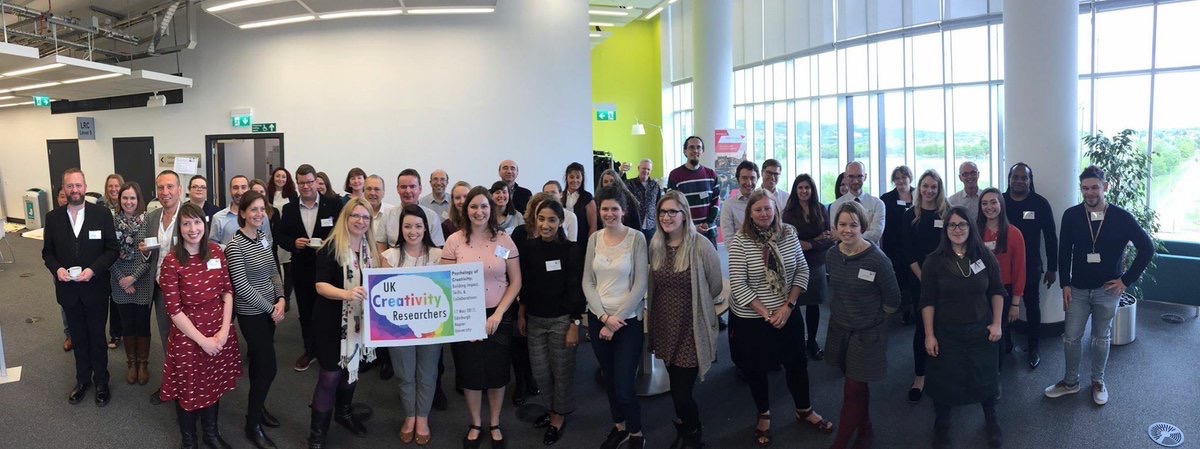Nobody is sure, quite yet, where ideas comes from, but we know that the idea for the UK Creativity Researchers Conference emerged over burgers in Barcelona, where Lindsey Carruthers, Shelly Kemp and Gillian Hill were attending last year’s BPS Cognitive Section Conference. Their feeling was that a creativity-specific gathering was needed for researchers to bring together their work and ideas. They imagined forty or so people might turn up. There were considerably more than that, and the conference was a great success. The organisers were particularly concerned with generating impact, and judging by the emails I’ve received this morning from potential collab
orators, together with some of the emails I fired off yesterday, the impact should be resounding.
Like intelligence and the Cornish pasty, creativity is difficult to define. That was one of the thread
s running through the talk by the keynote speaker, Giovanni Emanuele Corazza, which also included an impressive array of research projects underway at the Marconi Institute for Creativity. He conjectured that creativity might the single most important research area for the remainder of the century, simply because artificial intelligence is encroaching into so many other domains of human performance; our creativity, and perhaps related higher-level processes, might be last bastions to fall to AI. Parenthetically, one of Giovanni’s papers on eye tracking was suggested to me by a colleague last year when I was presenting similar work at the BPS Cognitive Section Conference, so it was interesting to see where that work is heading (Agnoli et al., 2015); just another example of the links that can be made at such gatherings.
Incubation was a feature of the talks that followed, first by Ken Gilhooly (‘Incubation: Past, Present and Future’) then George Georgiou (‘Incubation: Faciliation of Creative Problem Solving’). Incubation is the idea that people perform better on a problem when given a distracting break, as long as they know that the problem is waiting for them when they get back. One of Ken’s points is that unconscious work can be better than conscious work; from George, I learned that the effect of incubation is larger is the break is taken immediately. Kathryn Friedlander finished off this session with a description of her work on cryptic crosswords as a way of generating insight experiences (‘The Problem with Insight Problems’). Other talks included one from Paul Sowden (‘Exploring and Influencing Creative Thinking Processes’), in which he looked at dual process thinking in garden designers, and another from Alison Pease, which looked at the use of computers to investigate creative solutions to things like mathematical conjectures.
Overall, it was great conference—fun and well organised. It was even worth flying there and back in one day, though waking up at 4:30am and getting to sleep at 1:30am, together with a bit of exotic food (haggis) seems to have given me jet lag. There’s some research suggesting that non-optimal time of day can improve divergent thinking (Wieth & Zacks, 2011), so no complaints; I certainly have plenty of ideas, without even needing a burger.
Agnoli, S., Franchin, L., Rubaltelli, E., & Corazza, G. E. (2015). An Eye-Tracking Analysis of Irrelevance Processing as Moderator of Openness and Creative Performance. Creativity Research Journal, 27(2), 125–132. https://doi.org/10.1080/10400419.2015.1030304
Wieth, M. B., & Zacks, R. T. (2011). Time of day effects on problem solving: When the non-optimal is optimal. Thinking & Reasoning, 17(4), 387-401.
 psychology
psychology Marcus Roberts
Marcus Roberts 802
802


